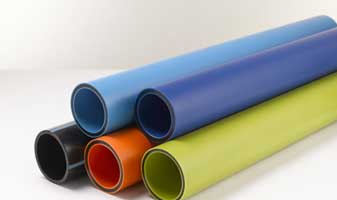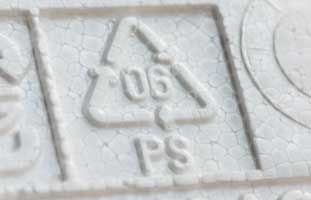VTT research: Using CO2 emissions to make plastics; Sulzer tie-up a step closer to large-scale PS circularity

Reducing industrial carbon dioxide emissions plays a key role in the fight against climate change. Utilisation of CO2 emissions is an important means to this end. A research project coordinated by Norway’s R&D institute VTT examines the capture and utilisation of carbon dioxide from the forest industry and waste incineration in the manufacture of different types of plastic products. Simultaneously, process concepts will be developed to enable the commercial utilisation of carbon dioxide emissions also in other fields of industry.
Carbon from industrial emissions of carbon dioxide can be bound in the products of the plastics and chemical industries. This creates possibilities for the development of new, climate-friendly plastics and other polymeric products.
VTT has long studied the possibilities for capture and utilisation of carbon dioxide in different sectors. The Forest CUMP project, which was launched in August 2022, continues this work, focusing on the carbon dioxide emissions of the forest industry and waste incineration. The intended end-products would be polyolefins – PE and PP – which are present in Finnish everyday life in many products and packaging. Today, these materials are manufactured almost exclusively from fossil raw materials.
The Forest CUMP project aims at developing a processing concept which would enable the scaling of the technology up to the level of industrial production. An interim goal in the commercialisation of the process is to build a small test plant in a selected industrial environment in 2024.
“We can utilise the results of the test plant in the development and design of an industrial-scale plant. In addition to technological development, we are studying the applicability of different sources of CO2 and methods for capture and purification of CO2. We are also looking into the logistical angle linked with the transport and storage of the feedstocks – carbon dioxide and hydrogen – and the intermediate products – hydrocarbons,” says VTT Research Professor Juha Lehtonen.
The Forest CUMP project is being carried out in close cooperation with company partners as part of the Business Finland's Veturi ecosystems, which promote sustainable development. It continues the work of the earlier BECCU project, which aimed at utilising carbon dioxide in the production of raw materials for polyurethane products such as insulation materials and industrial adhesives. The project developed technologies and a process concept for an entire value chain from the bioenergy production, and the capture of carbon dioxide, all the way to the production of chemicals and polymers. The Forest CUMP project is developing further the production technology of hydrocarbon intermediates developed in BECCU.
The project was launched in August 2022 and continues through the end of 2024. Participants in the project include the leading companies Borealis, Neste and ABB, and Metsä Spring, Kemira, Vantaa Energy, Stora Enso, Kleener Power Solutions, Carbon ReUse Finland, Fortum and Essity. LUT University is a research partner, alongside VTT.

Meanwhile in other news, Sulzer Chemtech has signed a Memorandum of Understanding (MoU) with VTT to advance the development and popularisation of a fully integrated processing train that converts poorly recycled waste PS into high-purity styrene suitable to produce various grades of styrenic polymers. These will also include demanding food-related applications with stringent, low VOC (volatile organic compounds) requirements.
The system will rely on VTT’s patented pyrolysis-based depolymerisation solution and Sulzer Chemtech’s SuRe Styrene purification technology. PS manufacturers and recyclers will benefit in the near future from a complete setup to increase the range of feedstock material supported by their plants. This will ultimately enable them to improve their sustainability and product quality.
Sulzer Chemtech, which supports VTT in the development of its innovative PS recycling technology, will act as the main licensor, providing full process solutions to customers. These include basic engineering services, supply of key equipment and skid-mounted modular units.
Jarmo Ropponen, Vice President of Industrial Chemistry at VTT, comments: “Sulzer Chemtech has an excellent track-record with projects aimed at driving circularity in the (bio)-polymer and plastic sectors. For VTT, Sulzer Chemtech is an ideal industrial partner to drive the global adoption of PS chemical recycling facilities. We look forward to working together to develop more sustainable plastics and bring positive change in the sector.”
Patrick Farquet, Head of Renewables and Bio-based Applications at Sulzer Chemtech, concludes: “We are excited to expand our licensed technology portfolio by integrating the VTT’s cutting-edge PS chemical recycling technology to further attest our commitment to sustainability. Even more, it will get us and the entire industry a step closer to making PS a fully circular product.”
(PRA)
Subscribe to Get the Latest Updates from PRA Please click here
©2022 Plastics and Rubber Asia. All rights reserved.

©2022 Plastics and Rubber Asia. All rights reserved.
Home Terms & Conditions Privacy Policy Webmail Site Map About Us






















